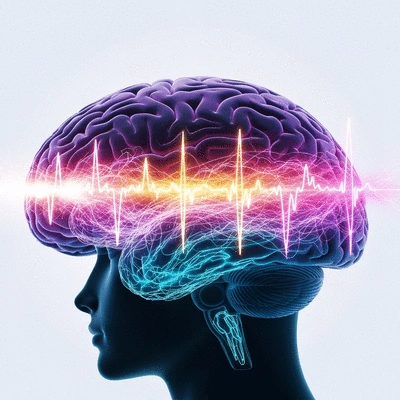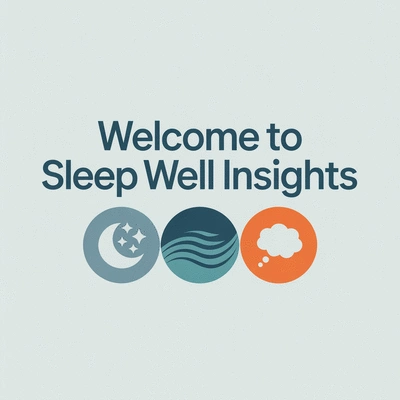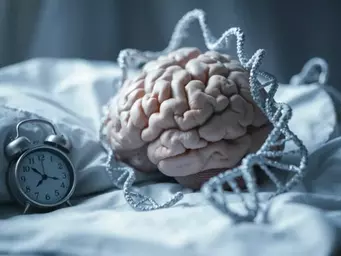What if I told you that your quality of sleep could significantly influence your mood, productivity, and overall health? Insomnia is a complex disorder affecting millions, and understanding its nuances may be the key to unlocking a more restful night. Dive into the world of sleep and discover how recognizing the types and triggers of insomnia can pave your way to better sleep.
What You Will Learn
- Insomnia is not just about sleeplessness; it impacts concentration, mood, and overall health.
- Different types of insomnia (acute, chronic, primary, secondary) require tailored approaches for effective management.
- Common coexisting conditions like sleep apnea and Restless Legs Syndrome can complicate insomnia and should be addressed holistically.
- Tracking individual sleep patterns and triggers empowers individuals to seek personalized solutions for better sleep quality.
- Creating a sleep-friendly environment and establishing a calming bedtime routine can significantly enhance sleep quality.
- Engaging with sleep experts and considering advanced evaluations can provide valuable insights for managing insomnia effectively.
Insomnia Explained: Types and Coexisting Conditions
Understanding insomnia involves recognizing its various forms and how it often intertwines with other sleep disorders. This visual breaks down the classifications of insomnia and common associated conditions.
Types of Insomnia
- Acute: Short-term, stress-triggered.
- Chronic: ≥3 nights/week for ≥3 months.
- Primary: Independent condition.
- Secondary: Due to other health issues.
Recognizing types guides treatment.
Coexisting Conditions
- Sleep Apnea: Breathing stops, fragmented sleep.
- Restless Legs Syndrome (RLS): Urge to move legs, disrupts sleep.
Insomnia often pairs with other disorders.
Understanding Insomnia: Types and Background Information
Have you ever been lost in a sleepless night, wrestling with thoughts that just won’t quiet down? Insomnia is more than just a frustrating experience; it's a common sleep disorder that can significantly impact your daily life. In my journey as a sleep health advocate, I’ve seen firsthand how insomnia affects not just sleep but overall well-being, productivity, and mood. Understanding insomnia is the first step toward reclaiming those precious hours of restful slumber.
So, what exactly is insomnia? It's defined as difficulty falling asleep, staying asleep, or waking too early and not being able to go back to sleep. This condition can lead to a host of challenges that extend beyond tiredness, including impaired cognitive function and increased irritability. As someone who has dedicated years to researching insomnia, I know that addressing this issue is crucial for a healthy, fulfilling life.

Defining Insomnia and Its Impact on Daily Life
Insomnia can be a sneaky thief of joy and energy. Many people don't realize just how much their sleep quality affects their day-to-day interactions and productivity. Insomnia can lead to:
- Decreased concentration and focus
- Increased anxiety and emotional instability
- Lowered immune function, making you more susceptible to illness
- Chronic fatigue that impacts overall quality of life
When we understand the impact insomnia has, it becomes easier to seek solutions. I often encourage my readers on Sleep Well Insights to prioritize sleep just as they would any other important aspect of health. For comprehensive information on what causes insomnia, you can refer to authoritative sources such as the Sleep Foundation.
Types of Insomnia: Acute, Chronic, Primary, and Secondary
Insomnia isn’t a one-size-fits-all condition; it comes in different forms. Understanding these types can help tailor the approach to managing sleep issues. The main classifications include:
- Acute Insomnia: Short-term, often triggered by specific stressors such as a significant life change or emotional distress.
- Chronic Insomnia: Lasts for at least three nights a week for three months or longer and may require professional intervention.
- Primary Insomnia: This type exists independently, not linked to other health issues.
- Secondary Insomnia: Occurs as a result of other conditions, such as pain or anxiety disorders.
Recognizing these types can guide individuals to the right resources and solutions, making every step toward better sleep feel achievable. The National Heart, Lung, and Blood Institute (NHLBI) provides further details on these classifications and their implications.
Related Sleep Disorders: Exploring Common Coexisting Conditions
Insomnia often doesn’t walk alone—it frequently pairs with other sleep disorders that complicate the landscape of restful nights. Common coexisting conditions include:
- Sleep Apnea: A condition where breathing repeatedly stops and starts during sleep, often leading to fragmented sleep.
- Restless Legs Syndrome (RLS): An uncontrollable urge to move the legs, which can disrupt sleep significantly.
Understanding these connections is vital. For instance, someone with insomnia may find that treating sleep apnea can lead to improved sleep quality overall. At Sleep Well Insights, I emphasize the importance of looking at the whole picture when addressing sleep issues. More information on insomnia and its related conditions can be found on MedlinePlus, a service of the National Library of Medicine.
The Connection Between Insomnia, Sleep Apnea, and Restless Legs Syndrome
It’s fascinating how interconnected sleep disorders can be! Take sleep apnea and RLS, for example. Those suffering from sleep apnea often experience insomnia due to the frequent awakenings caused by breathing disruptions. Similarly, RLS can cause an individual to have difficulty settling down for sleep, contributing to feelings of unrest and frustration at night.
By exploring these connections, we can develop a more comprehensive approach to treatment. For instance, using cognitive behavioral therapy (CBT) can help address the anxiety that often accompanies these disorders.
Pro Tip
Consider incorporating a "wind-down" routine into your evening schedule. Activities such as reading a book, meditating, or practicing gentle stretches can signal your body that it's time to relax and prepare for sleep. This simple change can significantly enhance your ability to fall asleep more easily and enjoy a deeper, more restorative slumber.
Frequently Asked Questions (FAQs)
- What is insomnia?
- Insomnia is a common sleep disorder characterized by difficulty falling asleep, staying asleep, or waking too early and not being able to return to sleep, leading to various daytime impairments.
- What are the main types of insomnia?
- The main types include acute insomnia (short-term, stress-triggered), chronic insomnia (lasting three nights a week for three months or longer), primary insomnia (independent condition), and secondary insomnia (due to other health issues).
- How does insomnia affect daily life?
- Insomnia can lead to decreased concentration, increased anxiety, emotional instability, lowered immune function, and chronic fatigue, all of which impact overall quality of life and daily interactions.
- Can other health conditions cause insomnia?
- Yes, insomnia often coexists with other sleep disorders like sleep apnea (breathing stops during sleep) and Restless Legs Syndrome (an uncontrollable urge to move legs), as well as conditions like pain or anxiety disorders.
- What is the first step towards improving sleep quality with insomnia?
- Understanding your individual sleep patterns, identifying potential triggers, and creating a sleep-friendly environment are crucial first steps. Keeping a sleep journal can help in tracking patterns and identifying areas for improvement.
- When should I seek professional help for insomnia?
- If self-help strategies are not sufficient, or if you suspect coexisting conditions, it is advisable to engage with sleep experts or consider sleep clinics and advanced sleep studies for comprehensive evaluation and tailored treatment plans.
Summarizing Key Insights on Insomnia Causes and Identification
Understanding the causes of insomnia is crucial for anyone grappling with sleep disturbances. Each person's sleep journey is unique, and factors contributing to insomnia can vary widely. By recognizing your individual sleep patterns and triggers, you can begin to tackle the underlying issues that may be keeping you awake at night. This personalized approach not only empowers you but also paves the way for more effective solutions.
It's essential to consider that insomnia often coexists with other health challenges. For example, stress and anxiety can create a cycle that exacerbates sleeplessness, making it vital to address both mental and physical health when seeking treatment. Remember, understanding your specific symptoms can lead you to the right path for relief.
The Importance of Understanding Individual Sleep Patterns
Understanding your unique sleep patterns is a game-changer. Consider keeping track of your sleep habits over a week or two. This can help you identify trends, such as:
- Consistent trouble falling asleep or staying asleep
- Nighttime awakenings and how long it takes to fall back asleep
- Daytime fatigue or mood changes
Recognizing these patterns can provide valuable insights when discussing your sleep issues with healthcare providers. At Sleep Well Insights, we emphasize the importance of self-awareness in managing insomnia effectively, as it equips you with the information needed to seek appropriate help.

Encouragement for Seeking Solutions: Finding the Right Path to Better Sleep
Don’t hesitate to seek solutions if you’re struggling with insomnia. It’s a journey, and there are myriad avenues to explore. From behavioral therapies to lifestyle adjustments, finding the right path can lead to profound improvements in your sleep quality. And remember, you’re not alone; many individuals have successfully navigated these waters!
At Sleep Well Insights, we advocate for a proactive approach. Here are some steps to consider:
- Identify potential triggers in your life
- Explore relaxation techniques, such as meditation or gentle yoga
- Consult with healthcare professionals for personalized guidance
Taking this initiative can ignite the transformation from sleepless nights to restful slumber. You deserve to wake up feeling refreshed and ready to embrace the day!
Next Steps: Taking Action to Improve Sleep Quality
Creating a Sleep-Friendly Environment: Practical Changes to Implement
Your bedroom environment plays a significant role in your sleep quality. Making a few simple adjustments can create a space conducive to restful sleep. Here are some practical changes to consider:
- Keep the room dark and cool
- Eliminate noise distractions, or consider using a white noise machine
- Invest in a comfortable mattress and pillows
Additionally, establishing a calming bedtime routine can signal your body that it’s time to wind down. At Sleep Well Insights, we encourage readers to experiment with what works best for them, as individual preferences can greatly influence sleep quality.
Tracking Sleep with Sleep Journals and Identifying Patterns
One effective method to enhance your understanding of sleep patterns is by maintaining a sleep journal. Documenting your daily sleep habits, emotions, and environmental factors will allow you to see correlations and identify areas for improvement. This simple yet powerful tool can guide you toward better sleep strategies!
Engaging with Experts: How to Find Support for Managing Insomnia
When self-help strategies aren’t enough, it may be time to engage with sleep experts. Finding professionals who specialize in sleep disorders can provide invaluable insights and tailored treatment plans. Whether through telehealth services or in-person visits, taking this step can lead to meaningful relief.
Exploring Sleep Clinics and Sleep Studies for Advanced Help
Sleep clinics and studies can offer comprehensive evaluations and sophisticated diagnostic tools that may reveal hidden aspects of your sleep issues. If you’re ready to take a deeper dive into your insomnia, reaching out to these resources can be a life-changing decision. Remember, seeking help is a sign of strength and a significant step towards reclaiming your nights!
Recap of Key Points
Here is a quick recap of the important points discussed in the article:
- Insomnia is a common sleep disorder that can severely impact daily life, affecting mood, productivity, and overall well-being.
- Understanding the different types of insomnia—acute, chronic, primary, and secondary—can help tailor effective management strategies.
- Insomnia often coexists with other sleep disorders such as sleep apnea and restless legs syndrome, necessitating a comprehensive treatment approach.
- Tracking personal sleep patterns and identifying triggers is crucial for addressing insomnia effectively.
- Creating a sleep-friendly environment and establishing a calming bedtime routine can significantly improve sleep quality.
- Seeking professional help and exploring various treatment options, including behavioral therapies, can lead to lasting solutions for insomnia.










